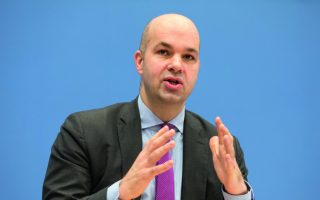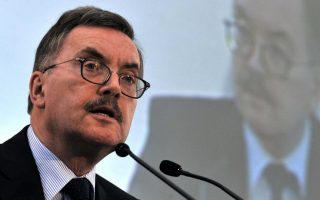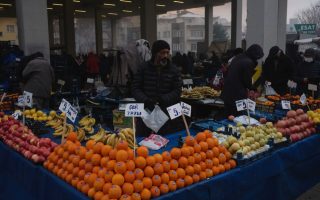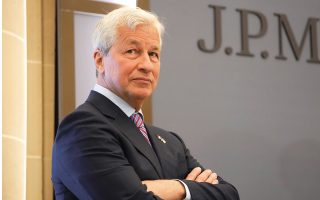‘Slobalization’ is not the end of globalization
Former World Trade Organization chief Pascal Lamy speaks to Kathimerini about the impact of successive crises on our interlinked economies
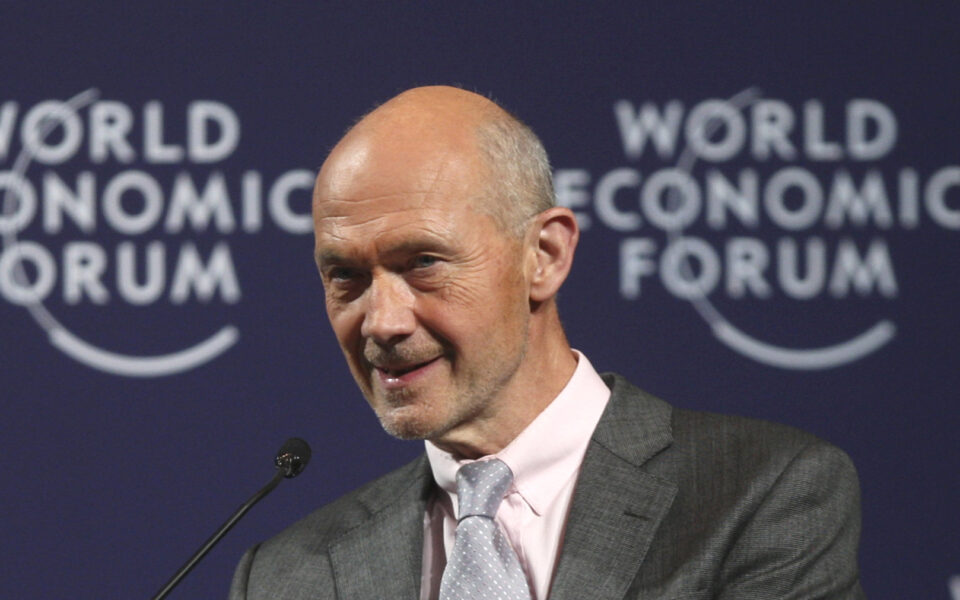
Speculation about the death of globalization is greatly exaggerated, according to Pascal Lamy, former adviser to the late French finance minister and European Commission chief Jacques Delors, and ex-head of the World Trade Organization (WTO).
Lamy, who also served as the European Union’s trade commissioner, argues that the shocks from the pandemic and Russia’s invasion of Ukraine do not signal a paradigm shift, but have simply “repriced” the risks of interconnections and slowed down the multi-localization of production systems.
Commenting on European sanctions against Russia, he observes that they do not “bite into energy,” meaning that the Europeans have ended up paying about two-thirds of the 1 billion dollars per day that the war in Ukraine is costing the Kremlin.
Asked about the theory that globalization helps prevent war, he points to the fact that some of the worst wars of the past 50 years have been in places that are “outside normal patterns of trade.”
The Ukraine crisis is testing the resilience of open international trade anew. Most of the analyses one reads today talk about the possible end of globalization. What is your opinion?
“The news of my death is greatly exaggerated,” as coined by Mark Twain! Whereas there has been a series of trends and transformations that, in my view, have resulted in a different globalization, I don’t see a change of paradigm. I see changes but nothing like deglobalization or an end of globalization. This is not what the numbers say when you measure globalization as the intensity of international exchanges and interdependence via supply chains. Ukraine is a different shock than Covid and Covid was a different shock than Fukushima and Fukushima was a different shock than floods in Southeast Asia at the end of the 2000s and the floods in Southeast Asia were a different shock from the subprime crisis.
The main parameter that frames these changes are changes in relative prices that translate into changing costs for production systems. And more specifically, for a long time in the past, the cost of distance. There are now many other parameters as well, like the cost of energy or the cost of wages: The Chinese minimum wage rising 15% per year has profoundly influenced patterns of trade. In the future, the main parameter that will change, in my opinion, is the price of carbon, the increase of which will have lots of consequences on the distribution of trade. And what we have seen during the last 10 years, with weather events or the shock of Covid, among others, is a repricing of risk. Factoring in sanitary risks or environmental risks impacts trade. The same goes with increasing security risks, as evidenced with the Russian invasion of Ukraine, or with the US attempt to decouple its economic system from China. So, risk is more expensive than it was.
We actually have a shift from protectionism to precautionism. It’s not so much protecting your producers from foreign producers, but it’s about protecting your population from risks, which entails a series of measures, some of which have consequences on trade flows. Sure, the speed of multi-localization of production systems has slowed down. Ιt is what we call slowbalization. Yet, there remain more pluses than minuses in flows of international exchange. On the other side, the increasing speed of digitalization augments cross-border trade in services. And then you have all this data. The value in the exchange of data, although poorly measured, is likely to grow in a big way and will make economic systems more interdependent.
Do you think that the international isolation of Russia – with one main element being Europe’s effort to reduce its dependence on Russian energy reserves – is here to stay?
European sanctions on Russia for the moment do not really bite into energy, unfortunately, in my view. We still import a lot of oil, gas and coal from Russia. The cost of the Russian war in Ukraine, for Russia, is roughly 1 billion euros per day and Europeans pay for two-thirds of that.
‘European sanctions on Russia for the moment do not really bite into energy, unfortunately, in my view. We still import a lot of oil, gas and coal from Russia’
Is that two-thirds all in energy?
Exactly. Actually, if you look at the pattern of Russia trade on the export side, Russia is not a seriously globalized country. It exports hydrocarbons and aluminium or steel, where they have the advantage that they don’t pay for energy at international prices. And they export agriculture. All these are what economists call fatal trade. If you add weapons, this is almost 90% of Russian exports.
So, to return to the initial question, whatever happens in the short term, I am convinced that this Ukraine invasion by Russia will lead to the EU looking to reduce its dependence on Russian fossil fuels, whether it’s coal, oil or gas. It will take a little time. There are possible substitutions, but probably at the cost of higher prices and a more dirty environmental footprint in the short term, unfortunately. If you compare Russian gas to US liquefied natural gas (LNG), the environmental footprint is very different. But, all in all, I think in the long term there will be a synergy between the decarbonization trajectory of the EU and less dependence on Russian fossil fuels. And this, at the end of the day, will lead to an acceleration of the EU decarbonization trajectory. As far as the sanctions are concerned, I believe we have to keep the pressure on until Russia brings its troops back home. And it might take some time.
How important will the impact on the European economy be? Because, for example, alternative energy sources may be more expensive at the end of the day.
This is absolutely true in the short term, whereas we also know that the cost of renewables is decreasing with the size of renewables production, whether it is wind, solar or hydrogen. But, yes, this is a price to pay. What has changed is the actualization rate. We have to decarb faster than previously. And it will necessitate more and faster investment.
What should the West’s strategy be in terms of its trade relations with China?
The answer is different for the US and for Europe, as we have a different geostrategic, geoeconomic and also technological starting point. I think that Europe should keep China globalized while correcting some imbalances or lack of reciprocity. Whatever danger we attribute to China – which is a partner, a rival and a competitor – a globalized China is less dangerous than a deglobalized, self-sufficient China. That’s why I have reservations vis-a-vis the US policy now, which is to isolate China more and more.
Greece is a country that relies heavily on tourism. How do you see the trends in this sector, with the coronavirus and the Ukrainian crisis in the background?
There will be long-standing consequences. First – and this has less to do with Greece – for business travel, because now we have substitutions, as our Zoom meeting indicates. Second, there will be a relocalization to tourism which anyhow was already in the cards. Because of the environmental footprint of tourism that has to be reduced. It has to do with transport and the way a number of some tourist sites have been developed. But Greece still has a huge attraction because of its climate, its beauty and its people. So, the French will visit and stay in Greece. But they will probably go more to France and a bit less to Greece. And I think that from the side of tourism policy, the emphasis must be put on the green or the blue economy and offering novel experiences to visitors.
Many hoped that economic interdependence due to globalization would serve as a guarantee for peace. Do you think this assessment has been overturned?
We can approach this from the other side as well. Because of the Russian dependence on exports, we now have a lever with sanctions that we would not have otherwise. Let me put it this way: Interdependence is leading more to peace than war. For the last 50 years, if you look for the places on this planet where we had terrible wars – such as Syria, Afghanistan, Chechnya, Sudan, Eritrea, Yemen – it is not a coincidence that these places are outside normal patterns of trade. And I think that if Vladimir Putin had in mind a positive view of the future – which is evolving Russia into a vibrant, forward-looking international community – he would not behave in the way he does.
